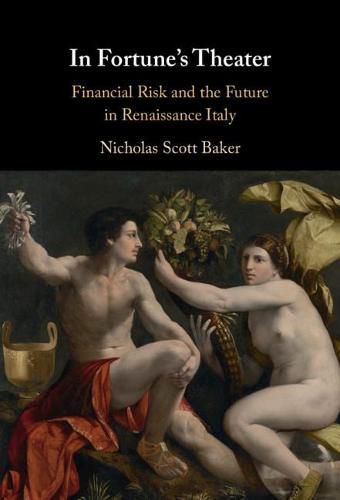Readings Newsletter
Become a Readings Member to make your shopping experience even easier.
Sign in or sign up for free!
You’re not far away from qualifying for FREE standard shipping within Australia
You’ve qualified for FREE standard shipping within Australia
The cart is loading…






This innovative cultural history of financial risk-taking in Renaissance Italy argues that a new concept of the future as unknown and unknowable emerged in Italian society between the mid-fifteenth and mid-sixteenth centuries. Exploring the rich interchanges between mercantile and intellectual cultures underpinning this development in four major cities - Florence, Genoa, Venice, and Milan - Nicholas Scott Baker examines how merchants and gamblers, the futurologists of the pre-modern world, understood and experienced their own risk taking and that of others. Drawing on extensive archival research, this study demonstrates that while the Renaissance did not create the modern sense of time, it constructed the foundations on which it could develop. The new conceptions of the past and the future that developed in the Renaissance provided the pattern for the later construction a single narrative beginning in classical antiquity stretching to the now. This book thus makes an important contribution toward laying bare the historical contingency of a sense of time that continues to structure our world in profound ways.
$9.00 standard shipping within Australia
FREE standard shipping within Australia for orders over $100.00
Express & International shipping calculated at checkout
This innovative cultural history of financial risk-taking in Renaissance Italy argues that a new concept of the future as unknown and unknowable emerged in Italian society between the mid-fifteenth and mid-sixteenth centuries. Exploring the rich interchanges between mercantile and intellectual cultures underpinning this development in four major cities - Florence, Genoa, Venice, and Milan - Nicholas Scott Baker examines how merchants and gamblers, the futurologists of the pre-modern world, understood and experienced their own risk taking and that of others. Drawing on extensive archival research, this study demonstrates that while the Renaissance did not create the modern sense of time, it constructed the foundations on which it could develop. The new conceptions of the past and the future that developed in the Renaissance provided the pattern for the later construction a single narrative beginning in classical antiquity stretching to the now. This book thus makes an important contribution toward laying bare the historical contingency of a sense of time that continues to structure our world in profound ways.